
Community members, organizations, and advocates from the Central Valley gathered to discuss the potential impact of the proposed $880 billion cut to Medi-Cal. (Photo by Amairani Hernandez.)
On Wednesday, April 30, community members, organizations, and advocates from the Central Valley gathered at the Bakersfield American Indian Health Project (BAIHP) to discuss the potential impact of the proposed $880 billion cut to Medicaid and Medi-Cal on local vulnerable families.
Medicaid is the nation’s largest health insurance program and Medi-Cal is the state’s health insurance program that receives one-third of its funding from the federal government. The Republican budget proposal could affect 15 million Californians, including seniors, people with long-term illnesses and disabilities, children and working families who rely on these programs for essential health services.
Under David Valadao’s district (CA-22), 527,000 people are enrolled in Medi-Cal, which is 67% of local residents and the highest rate of enrollment in the state.
The event, titled “Future of Healthcare Hinges on Congressional Vote — Children at Risk,” was hosted by American Community Media and featured a panel of local and statewide experts who shared personal stories, policy insights and urgent calls to action to their representatives.
Laura González, a local resident, said she and her family are deeply horrified by the proposed healthcare cuts, noting that two of her family members would be directly affected if the federal government moves forward with them. “My mother, who is 76 years old, and my brother-in-law, who is a farmworker, are both on dialysis and need it,” she said. “They can't even go a day without dialysis and their medications.”

Laura González, local resident from Bakersfield. (Photo by Amairani Hernandez.)
González explained that the healthcare services they are currently receiving are essential for her family and that without them they would not be able to pay for medication or for the dialysis treatment. “Even if we all joined as a family, we wouldn't be able to raise the money to cover the cost.”
Reyna Olaguez, president and CEO of Building Healthy Communities Kern, said that over the years,they, along with other community-based organizations, have fought to ensure that everyone has access to health care regardless of immigration status.
According to a 2022 Community Health Needs Assessment, Kern County had a higher rate of deaths from COVID-19 than in the state. Additionally, 56.4% of the county deaths from COVID-19 were among Hispanics/Latinos.

Reyna Olaguez, president and CEO of Building Healthy Communities Kern. (Photo by Amairani Hernandez.)
Olaguez shared that during the pandemic, they administered over 12,000 vaccines. “In Kern County, we learned that we needed to come together to provide vaccines for the people that needed them the most in rural communities,” she said. “And this was all because we know that many people didn't have access to health care or they just had a hard time reaching clinics in their communities. Kern County cannot afford to lose any health care.”
She stated that in the Latino community, many suffer from diabetes at a very “horrible rate.” According to the UCLA Health Policy Research Brief, Latinos have the highest prevalence within each age group, in part because many Latinos are diagnosed with diabetes at younger ages than other groups. Today, 70% of Latino adults have been diagnosed with diabetes, more than non-Hispanic white adults, according to the U.S. Health and Human Services.
Olaguez shared that diabetes runs in her family and that systemic barriers in the healthcare system have led to delayed diagnoses, limited access to care and long waiting times for appointments, ultimately leading to her father losing a toe and to her grandmother losing both of her feet.
Joy Docker, from the Western Center on Law and Poverty, said that “if Representative Valadao and just a few other Republicans vote ‘no,’ the proposal could fail. That’s how close the margin is.”
She also emphasized that if federal funding is cut, millions of Californians could lose access to care. “Our families, friends, and neighbors are facing a tremendous threat due to decisions being made by our congressional representatives.”
The budget cuts will impact more than 80 million Americans, including one in three Californians who use these programs. Medi-Cal currently covers the following:
-Nearly four in 10 children and over eight in 10 children who are in poverty.
-Qualified pregnant women.
-Adults ages 19 to 64 with disabilities.
-People aged 65 and over who meet financial limits.
Additionally, Medicaid covers people with disabilities from physical conditions, intellectual or developmental disabilities, serious behavioral disorders or serious mental illness.
Ulysses Hernandez, a native of Los Ángeles who was born with TAR syndrome, said that he depends on Medi-Cal for his everyday medical needs. “If these cuts happen, I would no longer have access to wheelchair repair. I would no longer have access to wound care for my backside. I would be devastated,” Hernandez said. “I rely on my power chair to go to school, to the supermarket and to my appointments. I have to live with the fact that one day, my mom or my brother won’t be here to help me. That’s why my insurance is so important. I need it to live.”

Ulysses Hernandez. (Photo by Amairani Hernandez.)
Devon Newton, a veteran and a father of a child with a disability, said that when his wife was pregnant, they both received the news that their baby had been diagnosed with spina bifida. Their doctor had explained that a prenatal surgery might help, but unfortunately at the time, their insurance could not cover it.
“My son’s condition left his spinal cord exposed. He will be physically disabled for life,” Newton said. Newton shared that up until his son Cairo turned three, life had been nothing but challenges. “Every step forward came two steps back. We fought tooth and nail, every service, every piece of equipment, every accommodation,” he said.
He was also told that his son is not disabled enough, he's not sick enough and that he doesn't qualify for certain services. “Meanwhile, I'm staring at my baby boy, knowing he's at constant risk of severe complications, only we're running out of options,” he said.
Newton shared that navigating the system was extremely difficult and that it felt like it was like a labyrinth. “So when I hear politicians talking about cutting these programs, as if they're luxuries,” he said. “We can't afford that mindset; it's unconscionable.”
Tara Gray, Tribal Liaison for the (BAIHP), stated that more than 24,000 Native Americans living in Kern County could lose vital services if Medi-Cal programs are cut.
BAIHP serves members of more than 200 tribes and is the only clinic in the area dedicated to providing culturally specific care for the Native American community. Its comprehensive services include behavioral health, medical care and support for issues such as homelessness, chronic illnesses, substance use disorders, medication management, crisis intervention and suicide prevention.

Tara Gray, Tribal Liaison for the Bakersfield American Indian Health Project. (Photo by Amairani Hernandez.)
“If we were going to face a cut from Medi-Cal, it would affect all of these services directly, 70% of our funds come from Medi-Cal funding,” Gray said. “The community can raise awareness by sharing articles, sharing data, sharing statistics and sharing their own stories of how Medi-Cal has had a positive impact on them, and by contacting their congressman and encouraging him to support the funding of Medi-Cal.”
Budget negotiations are currently underway in Washington, D.C., with the House Energy and Commerce Committee expected to release its official proposals on May 7.
A full federal budget plan is anticipated by June or July, but Congress hopes to have a final vote on a single bill before the August Congressional recess.

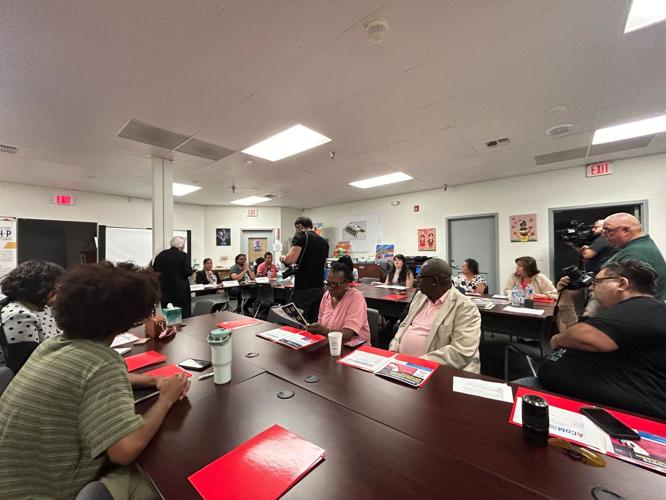
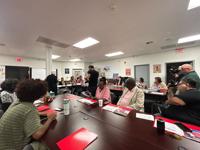
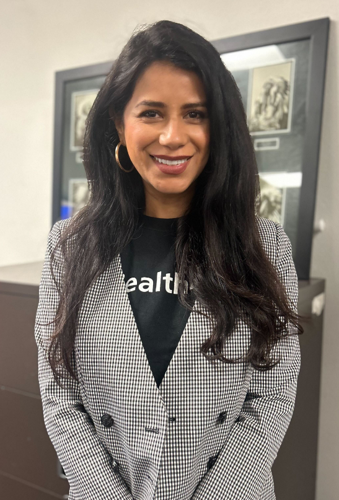
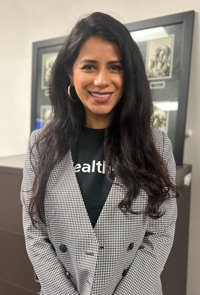
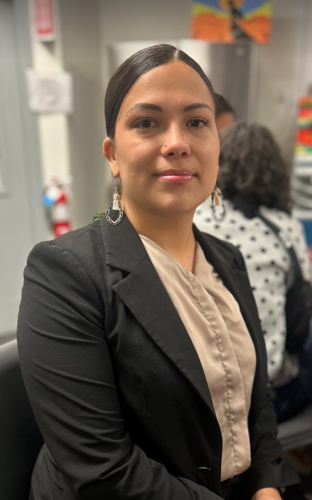
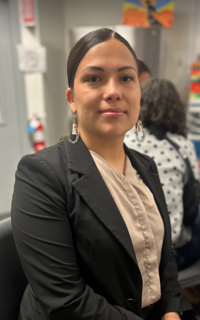
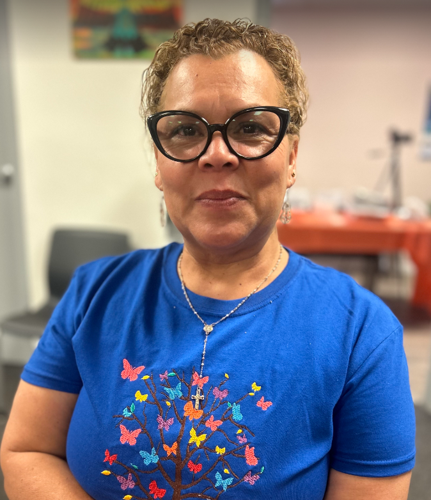
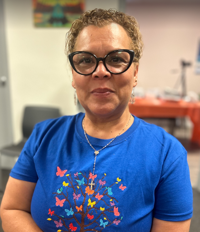

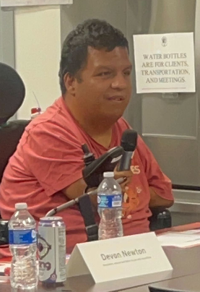

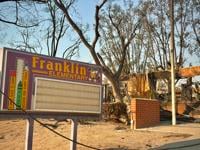

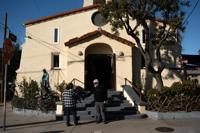

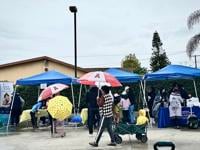


(0) comments
Welcome to the discussion.
Log In
Keep it Clean. Please avoid obscene, vulgar, lewd, racist or sexually-oriented language.
PLEASE TURN OFF YOUR CAPS LOCK.
Don't Threaten. Threats of harming another person will not be tolerated.
Be Truthful. Don't knowingly lie about anyone or anything.
Be Nice. No racism, sexism or any sort of -ism that is degrading to another person.
Be Proactive. Use the 'Report' link on each comment to let us know of abusive posts.
Share with Us. We'd love to hear eyewitness accounts, the history behind an article.